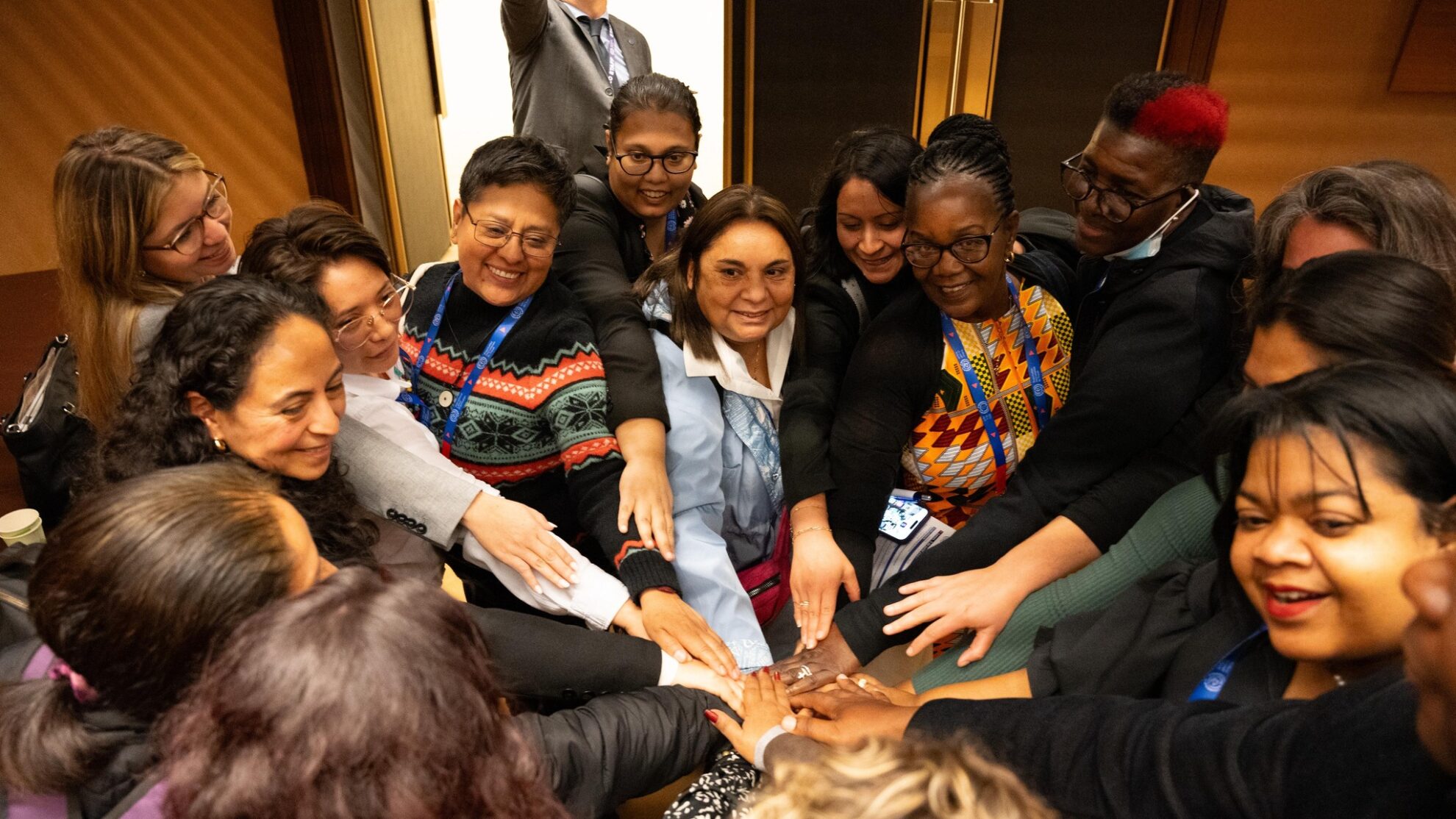The 2025 International Labour Conference (ILC) includes a general discussion on promoting transitions towards formality. WIEGO and organizations of workers in informal employment will advocate for rights-based formalization that ensures dignity, legal recognition, social protection, and decent work for all.
This year marks the tenth anniversary of ILO Recommendation 204, the first international labour standard to focus on the transition from the informal to the formal economy. Adopted in 2015, R204 sets out key steps governments can take to prevent the informalization of formal employment and to support formalization processes for all workers – regardless of their status in employment.
As governments, employers, and workers gather at the 113th Session of the International Labour Conference to revisit this critical agenda, worker organizations are calling for a rights-based approach to formalization - which upholds the principles of R204: respect for workers’ fundamental rights at work, preservation of existing livelihoods and promotion of decent work.
A key debate in this year’s general discussion is likely to centre on the priority actions that ILO constituents (governments, employers and workers) and the ILO itself should take to address informality. A tendency is to focus on improving the productivity of informal enterprises and economic units, based on the assumption that this will eventually lead to improved incomes and well-being. But, the vast majority of people who work in informal sector units are not in a position to take on entrepreneurial risks; they face a myriad list of other risks which impact their ability to work: no access to social protection, their rights are not covered or respected under labour law and they face other forms of harassment, discrimination and exclusion. To respond to this reality, formalization efforts should instead focus on reducing the risks workers face through inclusive and appropriate public policies.
Global Worker Networks Outline a Rights-Based, Inclusive Path Forward
In a Global Position Paper on Formalization, six organizations —HomeNet International, the International Alliance of Waste Pickers, the International Domestic Workers Federation (IDWF), StreetNet International, the Unión de Trabajadores y Trabajadoras de la Economía Popular (UTEP), and Women in Informal Employment: Globalizing and Organizing (WIEGO)— outline shared demands for a rights-based transition rooted in real-world experience.
They call for:
- Risk Reduction First – Not Productivity Alone: Legal recognition, inclusive regulations, and social protection must come before any focus on increasing productivity.
- Job Creation & Enterprise Development: Create tailored legal frameworks and tax regimes which support formalization & economic inclusion through cooperatives and other social solidarity economy entities.
- Rights at Work for All: Establish and implement legal frameworks that recognize and protect workers in informal employment, including own-account workers and those in digital and platform-based jobs.
- Universal Social Protection: Access to social protection - including health care, pensions and income support - should be at the forefront of efforts to incentivize formalization for workers. It reduces workers’ vulnerability to shocks, while promoting well-being and economic stability.
- Freedom of Association and Collective Bargaining: Expand and institutionalize the right to freedom of association and collective bargaining for all workers - regardless of whether they are in an employment relationship or the manner in which work is arranged.
These principles are not abstract ideals — they are already being put into practice. From cooperatives to community-led care systems and climate solutions, workers in informal employment are showing what solidarity-based, sustainable formalization looks like on the ground.
Background:
The 113th Session of the International Labour Conference is being held at the International Labour Organization (ILO) Headquarters in Geneva, Switzerland, in June 2025. Government officials, trade union representatives and employers’ associations from 187 countries gather every year in Geneva to develop international labour standards and set the broad policies of the ILO.
